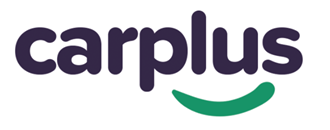Who we cover
- Family health insurance
- Health insurance for over 50s
- Health insurance for over 60s
- Health insurance for over 70s
- Health Insurance for pre-existing conditions
- Self-employed health insurance
- Health insurance for children
- Small business health insurance
- Comprehensive health insurance
- Couples health insurance
- Corporate health insurance
- International health insurance
- Family health insurance
- Health insurance for over 50s
- Health insurance for over 60s
- Health insurance for over 70s
- Health Insurance for pre-existing conditions
- Self-employed health insurance
- Health insurance for children
- Small business health insurance
- Comprehensive health insurance
- Couples health insurance
- Corporate health insurance
- International health insurance
- Health Hub
- About us
- Contact Us
The cost of small business health insurance in 2022
21.04.2022 ∙ Roman Danaev ∙ 10 min read
Both individual and corporate health insurance is expensive. However, it's important to protect your employees' physical and mental health as a business owner. Doing so means you have to offer health insurance plans to each employee. Health insurance for a small business is cheaper than it is for private individuals, and it also helps avoid waiting lists for health care appointments that can slow down work.
The cost of small business health insurance per employee or as a group varies. This guide will help you understand the factors that affect total insurance costs and why getting an insurance policy is expensive.
Our insurers
Read thorough guides about health insurance in our Healthhub! We write guides for people to help them pick the best medical insurance in the UK and take care of their health
What are the costs of small business health insurance?
The total cost of small business health insurance depends on many elements such as age, location, and benefits offered to your employees. One of the key factors that affect insurance costs is the number of staff an employer has. According to reports, over 5 million small businesses operate in the UK as of 2019 – 1.155 million have 1 - 9 employees, 211K businesses have 10 – 49 workers, and 35,585 have over 50 employees.
There are three tiers in health insurance plans: low, middle, and high. For small businesses with less than five employees, the average cost of health insurance per employee is between £169 and £211 per month. On the other hand, business owners with over 50 employees pay £1,686 to £2,105 for each of their staff’s health plans monthly.
What type of cover are you looking for?
You
Couple
Family
Business
Average cost of health insurance for small businesses per employee
In enrolling your company for medical care assistance, the typical cost per employee is around £45 per month. But this still depends on their age and tier cover. Here is the sample cost of small business health insurance cost per employee according to age:
- Low Tier or Basic includes inpatient health care and hospital expenses.
- £23 (20s), £26 (30s), £34 (40s), £48 (50s), £77 (60s)
- Middle Tier or Medium includes inpatient and outpatient care bills payment.
- £27 (20s), £30 (30s), £38 (40s), £54 (50s), £87 (60s)
- Higher Tier or Comprehensive includes semi to full coverage payment on inpatient, outpatient, extra medical treatment, mental health counseling, and other medical services.
- £27 (20s), £32 (30s), £42 (40s), £61 (50s), £102 (60s)
Factors affecting business health insurance costs
A business health insurance scheme is the same as a Premium or Private Health Insurance Policy, but a company pays for it, not an individual. As mentioned earlier, many factors affect insurance costs, and these are:
Number of employees
Group health insurance is much cheaper than individual plans: the larger the group, the more affordable the cover. Insurance policy providers offer larger groups discounts to lower the cost of premiums.
Age group
Case studies show that older employees' health plans are much higher than younger staff because of the type of medical service they need. A policy for a group of people over 50 years can go 2 to 3 times higher than regular premiums.
Job risk level
Another factor that greatly impacts a business's health insurance schemes is the occupation of the worker. The riskier their daily tasks, the higher the medical cost to pay. For example, an office-based worker has a lower coverage than roof workers who are at a higher risk of a claim.
Area or settings
The company's location is vital in a medical insurance scheme in the UK. Private hospitals in central London are usually the most expensive among health care facilities in the country. It is because the medical cost per employee depends on the prices of each medical service in the area. If you are located in a small town, the charge will be lower.
Our case
Case study help companies understand the cost of premiums using different schemes such as full coverage, psychiatric cover, moratorium underwriting, tax credit, and many more. Look at the sample case below to guide how much it would cost to get health insurance for your small business.
Case - 52 employees

- Full outpatient cover
- Therapies
- Mental Health
- £100 excess
- Moratorium underwriting
Aviva - £519 per employee = £26,988 per year
Axa - £607 per employee = £31,564 per year
Bupa - £586 per employee = £30,472 per year
Vitality - £702 per employee = £36,504 per year
How to calculate small business health insurance
Usually, health insurance companies calculate the cost of premiums by assessing the company's industry, location, worker's lifestyle and demographics, and moratorium underwriting. It's a process whereby insurers allow individuals not to disclose their full medical history and exclude all the pre-existing conditions in the five years before the cover starts.
There are different ways of calculating the cost of small business health insurance. However, you can use the guide below to see and estimate the cost of premiums based on the group size and their ages. Note that this is only for a mid-tier policy estimation and may differ from the actual amount by 10% - 30%.
| Number of Employees | Age: 21 - 25 | Age: 31 - 35 | Age: 41 - 45 | Age: 51 - 55 | Age: 60 - 65 |
|---|---|---|---|---|---|
| 1 | £27 | £30 | £38 | £54 | £87 |
| 5 | £133 | £150 | £192 | £271 | £436 |
| 10 | £266 | £301 | £384 | £542 | £872 |
| 50 | £1,330 | £1,503 | £1,920 | £2,710 | £4,360 |
| 100 | £2,660 | £3,006 | £3,840 | £5,420 | £8,720 |
The reason behind expensive health insurance and small companies
There are many factors that influence health insurance costs, such as the group size, worker's age, business location, and benefits covered for each employee. Health insurance is also costly because of its effects on a company. It can also become more expensive due to the insurer's hospital list, which mostly consists of private healthcare facilities.
Additionally, if your employees are over 50 years old, they might need a more complex health plan that will cost you more. Modernization is also a cause. Because of the continuous changes in policies and terms offered by the insurers, insurance has become too confusing or costly for some employers. This is why some companies don't have health insurance for their employees.
There are also several policies that are significant increase your costs of premiums, such as:
- Health Insurance Excess: The addition of an excess reduces premiums by reducing the overall cost of medical care. High excesses result in lower health insurance premiums.
- Adding Outpatient Cover: The addition of this coverage option results in a higher cost as it allows for faster diagnosis of conditions, including quick access to both outpatient care and inpatient procedures.
- 6 Week Wait: The insurer will check the NHS waiting list in your area for inpatient treatment if the worker needs it. An employee who has been ill for longer than 6 weeks will be treated privately at the expense of the insurer. The procedure is done on the NHS if the wait time is less than 6 weeks.
- Hospital List: Insurance companies offer different lists of hospitals that you can choose from, which determines the cost of your premiums. The best and most expensive hospitals in London are included as an additional tier by some insurers.
- Additional Cover Options: Many insurance providers offer optional extras that can be added to an existing policy for an additional charge.
- Underwriting: There are three main options available for underwriting, each affecting the cost of your insurance, such as:
- Full medical underwriting
- Moratorium underwriting
- Medical history disregard
What insurance options will affect your premiums?
Health Insurance Excess
The addition of an excess reduces premiums by reducing the overall cost of medical care. High excesses result in lower health insurance premiums.
Adding Outpatient Cover
The addition of this coverage option results in a higher cost as it allows for faster diagnosis of conditions, including quick access to both outpatient care and inpatient procedures.
6 Week Wait
The insurer will check the NHS waiting list in your area for inpatient treatment if the worker needs it. An employee who has been ill for longer than 6 weeks will be treated privately at the expense of the insurer. The procedure is done on the NHS if the wait time is less than 6 weeks.
Hospital List
Additional Cover Options
Underwriting
How to save money on small business health insurance
Business Insider said many small business owners want to offer health insurance but can’t afford to do so. Understandably, paying a monthly premium for each employee as a start-up or small business employer is costly. To help you with that, here are some tips for how you can save money on health insurance.
- Raise the pre-agreed amount that your employee should pay the insurer in the event of a claim.
- Lower the cover on outpatient medical services of your employee's insurance.
- Avoid overpriced health care facilities and private hospitals.
- Shop around, do not stick to one single insurer or policy tier, and look for discounts offered by different UK health insurance companies.
- Save yourself and your employees from out-of-pocket costs by providing a variety of health plans for each worker.
- Educate your employees on the importance, cost, and terms of getting health insurance.
- Pre-tax and Tax credits should be available.
Conclusion
Business health insurance is an example of a financial benefit you can offer your employees for their loyal service. One great benefit of business health insurance is providing a safer and more comfortable working environment for your workers.
It is expensive but beneficial, especially if you reach the out-of-pocket maximum where the insurer will pay the full coverage on the medical treatment needed by your employee. It will help you retain and attract potential new talent that you need for your business to flourish.
Latest articles

The cost of small business health insurance in 2022
Both individual and corporate health insurance is expensive. However, it's important to protect your employees' physical and ...
Learn more

How to get a doctor's appointment: Read on to find out
It's very important to know exactly what to do when you have a health problem, especially in case of ...
Learn more

Why do companies offer health insurance benefits?
When starting or running a small business, it’s important to make sure you have the resources necessary to keep ...
Learn more
Contact Us
Address
Lumiere House, Elstree Way, Borehamwood, WD6 1JH
Phone
020 3318 2328
contact@healthplan.co.uk
Business hours
Monday to Friday (8am - 7pm) and Saturday (9am - 6pm).
Have a any questions?
Speak to a real person!






